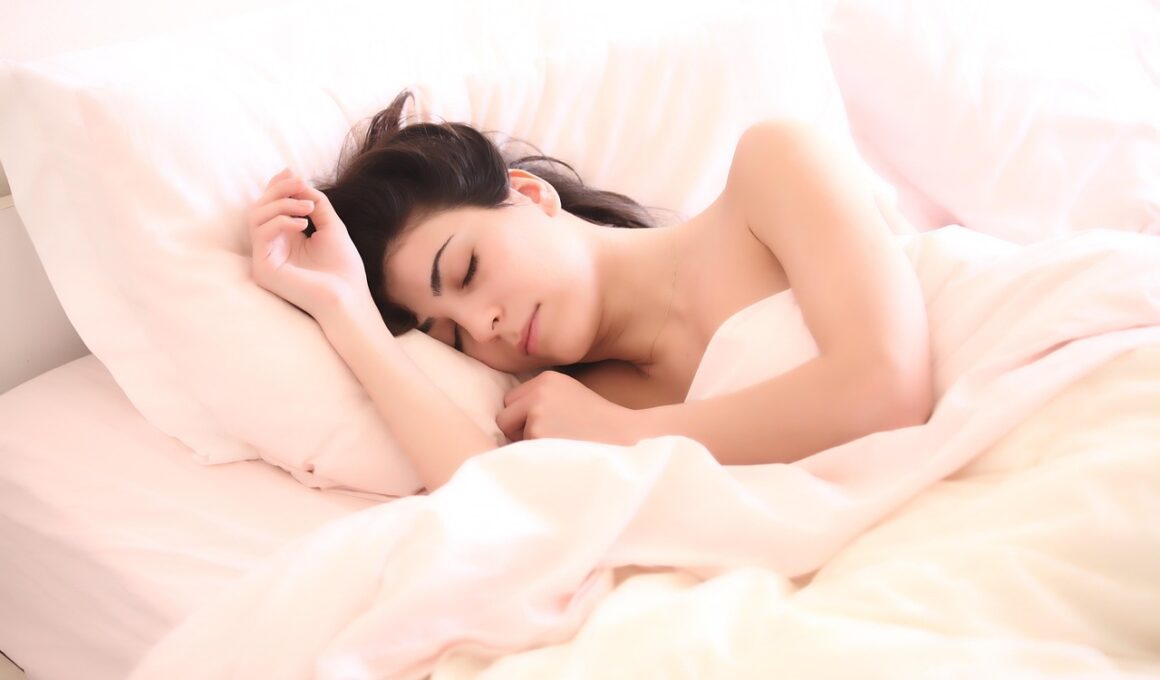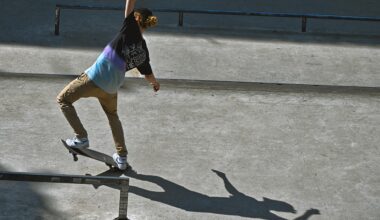The Impact of Light and Sound on Sleep Hygiene for Athletes
Sleep hygiene is vital for all individuals, especially athletes who need optimal rest for performance. One crucial factor affecting sleep hygiene is light exposure, particularly in the evening. Blue light emitted from screens can interfere with melatonin production, making it challenging to fall asleep. Athletes should limit screen time before bed and consider using blue light filters if necessary.
Another important aspect of light is its intensity and timing during the day. Natural sunlight exposure in the morning helps regulate circadian rhythms and can improve sleep quality overall. Athletes who train early should embrace morning sunlight to enhance their sleep patterns. Making a point to spend time outdoors can greatly aid in adjusting sleep cycles.
Sound is another environmental factor that significantly influences sleep hygiene. Loud or disruptive noises can prevent restful sleep, which is essential for recovery. Athletes should create a calm and quiet sleep environment. This can involve using earplugs or white noise machines to mask disruptive sounds that might hinder sleep quality.
While creating a quiet space is crucial, the choice of listening materials can also be beneficial for sleep. Soft music or nature sounds can be soothing and prepare the mind for sleep. Establishing a calming bedtime routine with sound can signal to the brain that it’s time to relax.
Improving Sleep Hygiene by Managing Light
Managing light exposure in the evening is key for better sleep hygiene. A dimly lit room can help signal the body that it’s time to wind down. Athletes should consider using blackout curtains to block out external light that can disrupt their rest and recovery process at night. This adjustment can lead to longer and more restorative sleep cycles.
Moreover, athletes should make it a habit to establish a tech-free zone in their bedrooms. Avoiding electronic devices can create an environment conducive to sleep. In addition, using sleep masks can further minimize light pollution and enhance the sleep environment, ultimately aiding recovery for athletes.
Another effective strategy for maintaining quality sleep is to manage caffeine intake. Limiting caffeine consumption in the hours leading up to sleep is beneficial. Athletes should be mindful of how caffeine can disrupt their sleep patterns and should try to consume their last caffeinated beverage in the early afternoon.
Conclusion: The Role of Environment in Sleep
In conclusion, athletes must prioritize sleep hygiene to enhance performance and recovery. By managing both light and sound, they can create an optimal sleeping environment. Fostering good habits related to light exposure, sound, and caffeine can greatly improve sleep quality. Prioritizing these factors can lead to improved resilience in training and overall well-being for athletes.


